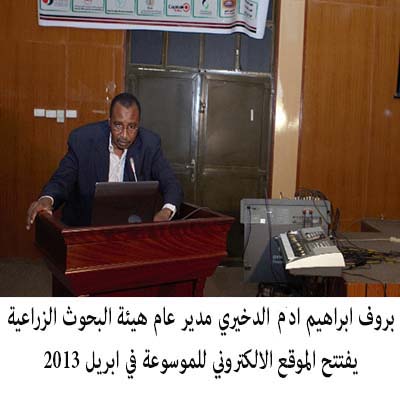البحوث
UTILITY OF THE RISK ASSESSMENT IN CLIMATE CHANGES: IDENTIFYING VULNERABILITIES AND ADAPTATIONS
HUSSNI O. MOHAMMEDa AND IMAD-ELDIN AHMED ALI BABKIRb aCollege of Veterinary Medicine, Cornell University, Ithaca, NY, USA bAgricultural Research Corporation, Soba, Sudan
ABSTRACT
We have been carrying out studies with the aim of assess the vulnerabilities of the watershed ecosystem to this stressor and identify adaptive interventions to maintain the watershed ecohealth and sustain its economic viability. The stressor of interest that evolved as climate change is Cryptosporidium parvum which is a coccidian protozoan that has zoonotic significance. Genotypes of this protozoan are known to contribute significantly to humans and animal morbidity and mortality and hence have become an economic liability for many communities. Because of its broad horse spectrum Cryptosporidium has emerged as one of the most significant waterborne pathogens causing enterocolitis in humans worldwide. It is plausible that climatological and environmental factors may have modified the host-parasite ecology and led to the emergence of new pathogenic strains of this waterborne pathogen. As a consequence the parasites have adapted to novel hosts, favoring the survival of ecological generalists (affecting multiple hosts) rather than specialists (affecting one host).
We employed the risk assessment approach to address this aim. The analysis was performed using both deterministic and stochastic approaches, based on data collected from this watershed ecosystem and complemented by estimates from the literature. A fault-tree pathway scenario approach was used to assess the likelihood of contamination of the water supply in the watershed. The analysis demonstrated the importance of farming activities in mitigating the risk of this protozoan associated with dairy cattle, and highlighted the role of sewage treatment plants.


